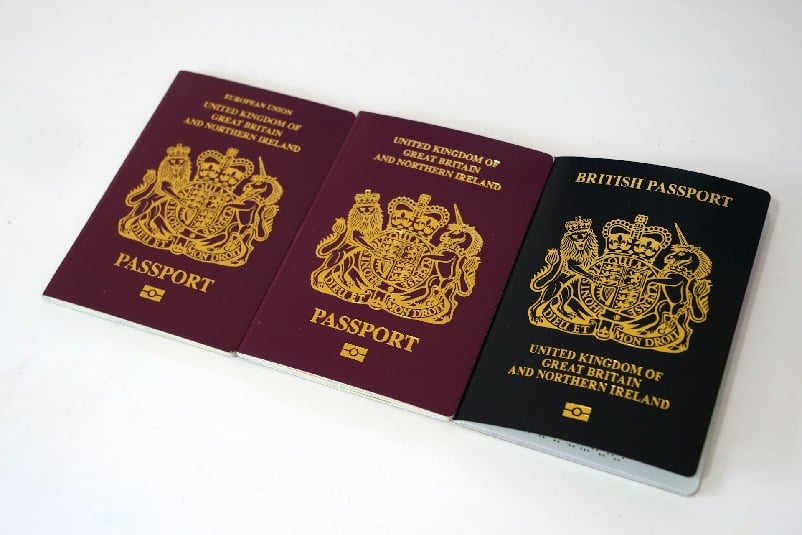How To Bring Oil And Gas Employees From Overseas To UK
Oil, gas and offshore energy companies have several options for hiring overseas workers to join existing or new operations in the UK. Our guide details everything you need to know, covering the steps for employing overseas staff in the UK.
We support businesses in obtaining sponsor licences, complying with UK immigration and employment laws, and hiring overseas employees. We can help evaluate your needs and recommend optimal immigration routes for gas and oil engineers, operators, managers, offshore wind workers and more. Contact us at +44 (0)333 414 9244 or message us online today.
Read our 1001 reviews
Employing Overseas Oil, Gas & Wind Workers: An Employer’s Guide
Energy companies must know the requirements for employing overseas workers to ensure compliance when shifting or expanding operations to the UK. This guide provides insights into recommended practices for employing overseas workers per UK immigration and employment law.
We answer the question of how to hire offshore wind workers, gas and oil employees from abroad to UK. We will explore sponsor licences, requirements, costs, worker visas and eligible occupations for international employees, ensuring you can make informed decisions on your recruitment strategy moving forward.
If you need help obtaining a licence to sponsor oil and gas workers from abroad or assistance getting the correct visa, contact the Immigration Advice Service. We help in all stages, from advice to applications. Call us today at +44 (0)333 305 9375 or message us online today.
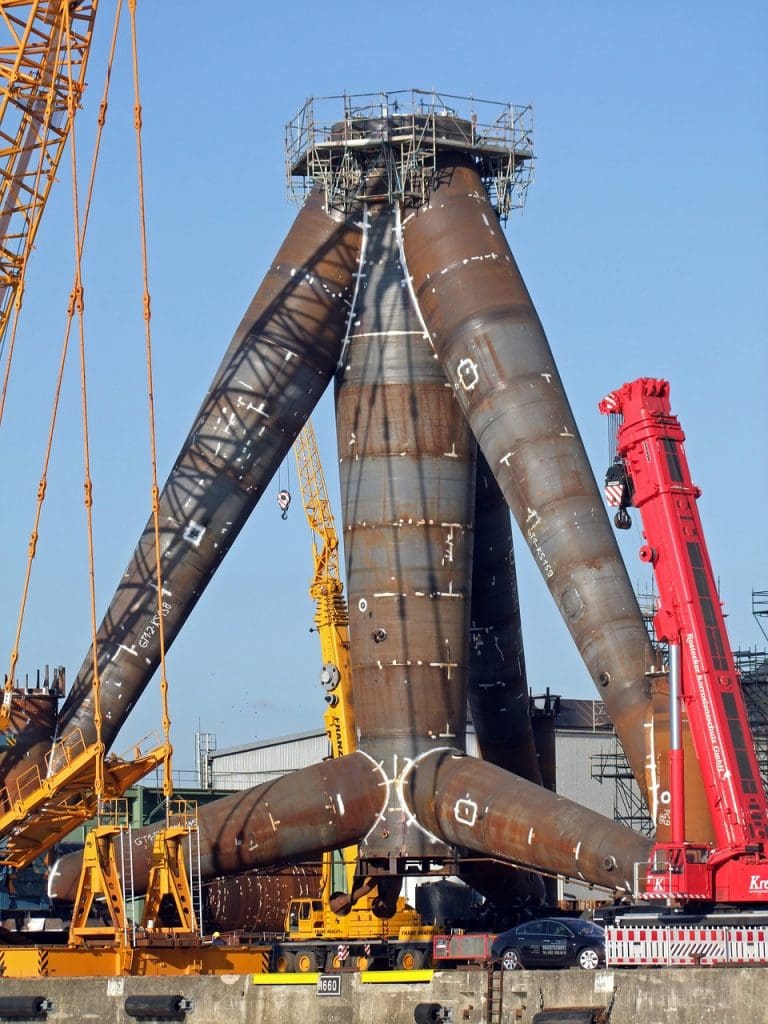
Sponsor Licence Requirement
Acquiring a sponsor licence demonstrates that your business meets strict criteria set by immigration authorities regarding employment practices for migrant labour. It requires submitting an application and supporting documents to the UK’s Visa and Immigration department.
The UK Home Office requires employers to obtain a sponsor licence for all overseas employees who do not hold the following:
- Indefinite Leave to Remain
- Settled or Pre Settled Status under the EU Settlement Scheme
- British Citizenship
- Irish citizens exempt under the Common Travel Area agreement.
Key responsibilities of employers:
Employers must have adequate HR systems to comply with the sponsor licence requirements set by the Home Office. All businesses will undergo inspection to prove they can meet the conditions. They include:
- Strict adherence to immigration rules and regulations, including performing right-to-work checks
- Maintaining accurate records of sponsored workers’ contact details.
- Ensuring the foreign workers comply with visa conditions and report any breaches.
- Informing the UK immigration authorities about any changes in job roles or salaries.
Employers’ failure to meet these obligations can result in severe consequences for their businesses, such as fines. It may even lead to the revocation of the sponsor’s licence.
You will be a Home Office-approved sponsor once you have complied with and passed an inspection. You will also gain access to the sponsorship management system, which allows you to report changes in the foreign workers’ circumstances, add new users, and assign certificates of sponsorship (CoS), among other things.

Apply For And Obtain A Sponsor Licence For Oil, Gas & Offshore Energy Companies
The cost of a sponsor licence depends on the size of your business and what kind of licence you apply for.
- If you want to hire temporary workers solely, the cost is £536 for a sponsor licence, regardless of your business size.
- If you want to hire only permanent staff or both permanent and temporary employees, you will pay £536 as a small business and £1,476 as a medium or large sponsor.
Most energy companies will be considered medium or large sponsors unless their company turnover is less than £10.2 million, their total assets are less than £5.1 million, or they have less than 50 employees.
Is a sponsor licence necessary?
A sponsor licence is usually required to employ an offshore worker in the UK. In some cases it may not be required, but a worker must always have a valid visa to work in UK waters. If working within 12 nautical miles of the coastline (the UK continental shelf), a visa is needed. Even if an employee is stationed outside of UK waters but living in the UK, they will likely need an offshore worker visa – usually a Skilled Worker Visa. They may qualify for a visa through a partner or another pathway.
They may be able to apply for a visa themselves or already have one, for example, if they’re a contractor. However, it is best practice and most common for the employer to arrange and sponsor them. Discover more information in our blog post, Why do I need a Sponsor licence?
Offshore Worker Notification
If you do have a sponsor licence and are sponsoring an employee:
- In addition to issuing a Certificate of Sponsorship (CoS), sponsors must report worker arrivals and departures within 10 working days via the Sponsor Management System (SMS).
Unsponsored workers must:
Email the Home Office with their name, date of birth, nationality, arrival/departure dates, activity, and immigration route, including their visa information and vessel name. This can be the name of the oil rig, wind farm, or offshore installation. Unsponsored workers must email [email protected] when they are working offshore. Notifications should be made no earlier than 10 days before the arrival or departure and no later than 10 working days afterward.
Issue Certificate Of Sponsorship (CoS)
After obtaining a sponsor licence, you can issue a Certificate of Sponsorship (CoS) to new or existing overseas employees. During the process, you must pass a Genuineness Test conducted by UK immigration. This ensures that your job offer is genuine. It must reveal that there is an actual vacancy for which you’re seeking to fill with skilled workers from abroad. It must also offer the right salary for the skillset.
When issuing a CoS, employers should consider the following:
- Ensure the job requires appropriate skills and offers a competitive salary.
- Determine how many CoS you can issue monthly.
- Providing clear job descriptions outlining the responsibilities, qualifications, and specific industry skills (e.g., petroleum engineers, geoscientists, drilling experts).
- Outline working hours, location of work, and remuneration details clearly.
- Perform background checks if needed
- Verify employment and education.
Additional Fees to Sponsor Employees
For permanent workers
- Certificate of Sponsorship (CoS) Cost: £239 per employee
- Applies to: Skilled Worker Visa and Senior and Specialist Worker Visa (Global Business Mobility)
- There is an additional Immigration Skills Charge for workers on either visa. This is £1000 per employee annually and £500 for an extra six months. A reduced rate of £364 and £182 (six-month extension) applies to small sponsors.
For temporary workers
- Certificate of Sponsorship (CoS) Cost: £25 per employee
- Applies to all other Global Business Mobility Visa applicants (excluding Senior and Specialist Worker Visa)
- No Immigration Skills Charge for Temporary Workers
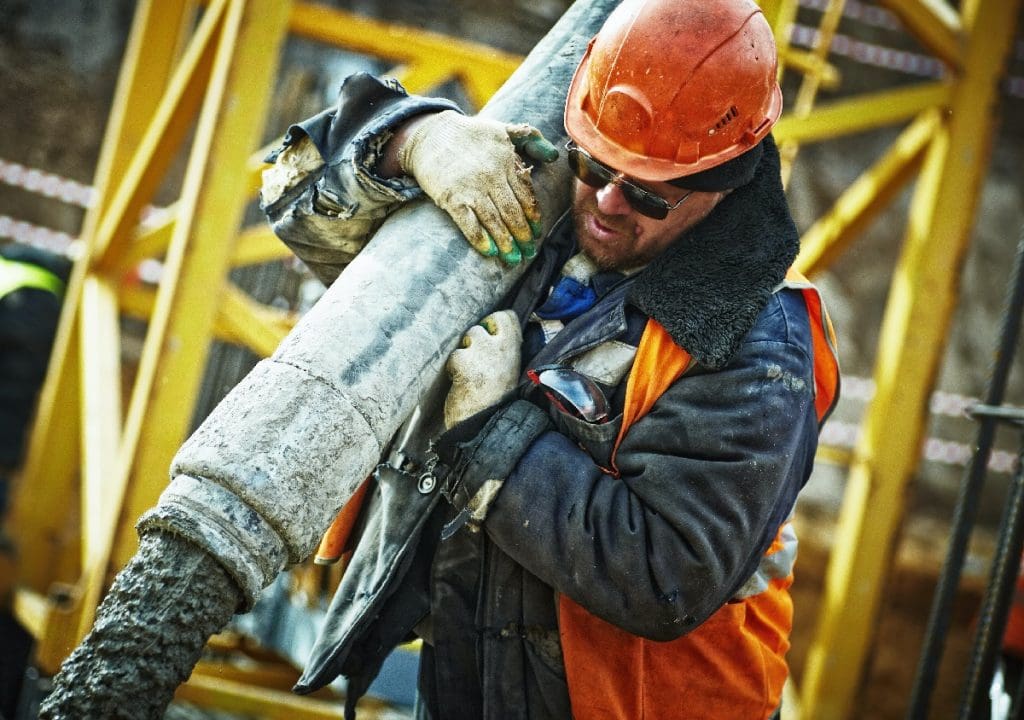
Ensure You Offer Potential Employees The Right Salary
UK businesses who want to hire overseas workers must offer salaries at or above the government-set thresholds. The salary requirements can vary depending on factors, including:
- Different job roles have varying minimum salary requirements.
- Jobs considered “shortage occupations” by the UK government or jobs for recent-grads or PhD holders in the STEM field may have lower thresholds.
- Salaries can also vary based on the location of the job.
- Experience and qualifications can influence the minimum salary requirement.
Pick The Right Visa And Permits For Your Overseas Oil & Gas Employees
Choosing the appropriate visa or work permit for your overseas workers is essential when hiring workers from abroad in offshore energy in industries like oil and gas. The main options suitable for this industry include:

Skilled Worker Visas
Skilled worker visas are suitable for hiring overseas professionals to fill oil, gas and offshore energy positions that are difficult to be filled by a UK resident. The visa category allows foreign workers to come to the UK. They must have been offered a job that matches their skills and experience.
A job offer must also meet the salary threshold of £38,700 or the ‘going’ rate for the job role—whichever is higher.
Going rate requirements
Multiple jobs are viable under the Skilled Worker Visa occupational list, allowing employment for overseas nationals in the oil, gas and energy industries. Each comes with different salary thresholds. In most cases, you must pay this salary or higher for the job. If the salary requirements are less than £38,700, then that is the minimum salary you must pay for the job role to qualify for Skilled Worker Visa applicants.
In some scenarios, it is possible to pay less than the ‘going rate’ or the £38,700 salary threshold:
- If hiring a student or recent graduate under 26, you can pay 70% of the going rate for the role as long as the salary is at least £30,960.
- If the prospective employee has a PhD in a relevant STEM subject, you can pay 80% of the going rate as long as the salary is at least £30,960. For non-STEM PhDs, it is 90% and a minimum of £34,830.
- If prospective employees have a postdoctoral degree in Science and work in a postdoctoral position, they can be paid 70% of the going rate. This route is available only for scientists and research positions.
Going rates in the oil and gas industry
Engineers
- Civil Engineers (Petroleum Engineer/Structural Engineer) – £45,500 (£23.33 an hour)
- Quality engineers & officers – £40,000 (£20.51 per hour)
- Mechanical engineers – £42,500 (£21.79 per hour)
Managers, Process Engineers & Consultants
- Project managers & project engineers – £48,800 (£25.03 per hour)
- Production and process engineers/consultants – £43,700 (£22.41 per hour)
- Purchasing managers & directors – £50,300 (£25.79 per hour)
- Production/Operations managers – £51,600 (£26.46 per hour)
Operators
- Production & Process Operators & Quality Assurance (chemical process/gas producer/test technician) – £30,960 (£15.88 per hour)
- Production planners, controllers and technicians – £33,700 (£17.28 per hour)
To qualify, applicants must meet criteria, including obtaining a certificate of sponsorship and demonstrating proficiency in English.

Senior or Specialist Worker Visa
Another route for permanent employment is for senior and specialist workers. This route is for overseas companies to relocate staff to the UK, generally for highly-skilled roles. It has replaced the Intra-company transfer visa. In addition to having a job offer and Certificate of Sponsorship from a Home Office-approved employer, to be eligible for a senior or specialist worker visa, an applicant must:
- Be in a position that is listed among the eligible occupations.
- Earn a minimum salary of £48,500 per year.
- Have worked for their overseas employer for at least 12 months unless they earn over £73,900. There is no minimum if they earn more.
Eligible occupations include:
- Production and process engineers
- Production & operations managers
- Quality managers/engineers/analysts
- Civil engineers (structural/petroleum)
- Mechanical engineers
It generally does not include operators. You can read our blog post to analyse the pros and cons and find out which is the best option between the skilled worker visa and Senior or Specialist Worker Visa.
Temporary Workers
Temporary workers are often employed in the oil and gas industry when employees are transferred for shorter-term assignments, like training and projects. Issuing a Certificate of Sponsorship (CoS) is less costly than for a permanent worker, costing £25 per issue. Global Business Mobility Visas are the most common visa type for temporary UK workers.
Global Business Mobility Route
- UK Expansion Worker Visa (GBM): This visa is for specialists who will help establish a UK branch for an overseas business that is not yet trading.
- Secondment Worker Visa (GBM): This visa is for employees transferred by their overseas employer to work in the UK for another organisation under a high-value contract.
- Graduate Trainee Visa (GBM): This visa is for employees in a graduate training program who require temporary UK assignments that lead to senior or specialist roles.
Certain oil and gas positions might require a security clearance. Be aware of visa types compatible with these requirements and the delays associated with clearance.
These are some potential options that you can consider. The best visa for your employee will depend on their role, qualifications, and experience. We advise you to consult with immigration specialists like IAS for assistance with this process.
For more information about sponsored workers and immigration rules, contact our expert lawyers at the Immigration Advice Service on +44 (0)333 305 9375. We can help you secure a CoS for your offshore workers.
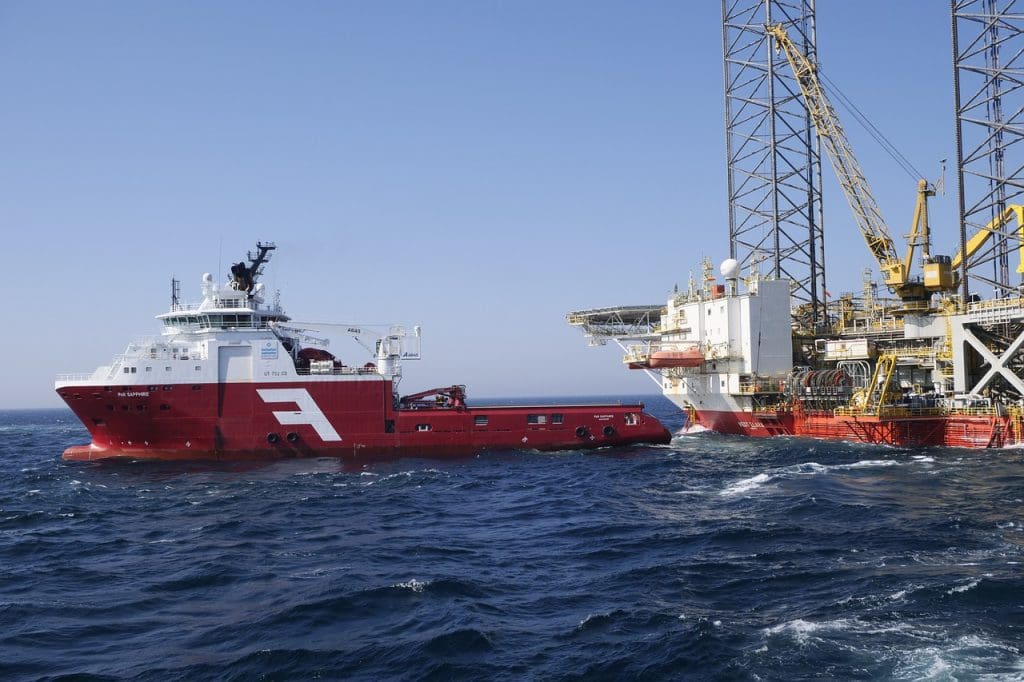
Perform Background Checks If Needed
When hiring specialised overseas workers for the oil & gas industry, it may be necessary to conduct background checks. The checks can vary depending on the type of visa or permit.
For instance, if applying for a general visa, they will typically need to provide a copy of a criminal record check from their home country or where they have resided for the last 12 months.
Background checks play a huge role in helping UK employers ensure that their new hires do not have any criminal history that could potentially jeopardise their businesses.
When performing these checks, it is critical to comply with data protection laws such as GDPR and UK GDPR and obtain consent from the candidates. Additionally, it is crucial to conduct them without discrimination and based solely on job-related criteria.
The type of security check can vary; these include:
- Criminal record checks: When dealing with applicants from overseas companies, they can request an overseas police check through their embassy or high commission.
- Consider utilising third-party verification services. These services have expertise in global databases and can provide reports on history, employment, and education.
Bringing Employee’s Dependents
When you hire experienced overseas workers, you must consider that many will have dependent family members, and they want to relocate with them.
Before they start relocating to the UK, the wellbeing of their family members should be a factor. It is essential to ensure that suitable accommodation has been arranged. On arrival, they may need additional support with:
- UK Skilled Worker Dependent Visa requirements
- Enrolling their children in schools, colleges, or a university,
- Accessing healthcare, like the NHS, dentists, and local GP services,
- Opening a UK bank account or building society account,
- Obtaining a national insurance number.
Companies must understand that ensuring a smooth transition for employees and family members can improve employee retention rates and performance on the job.
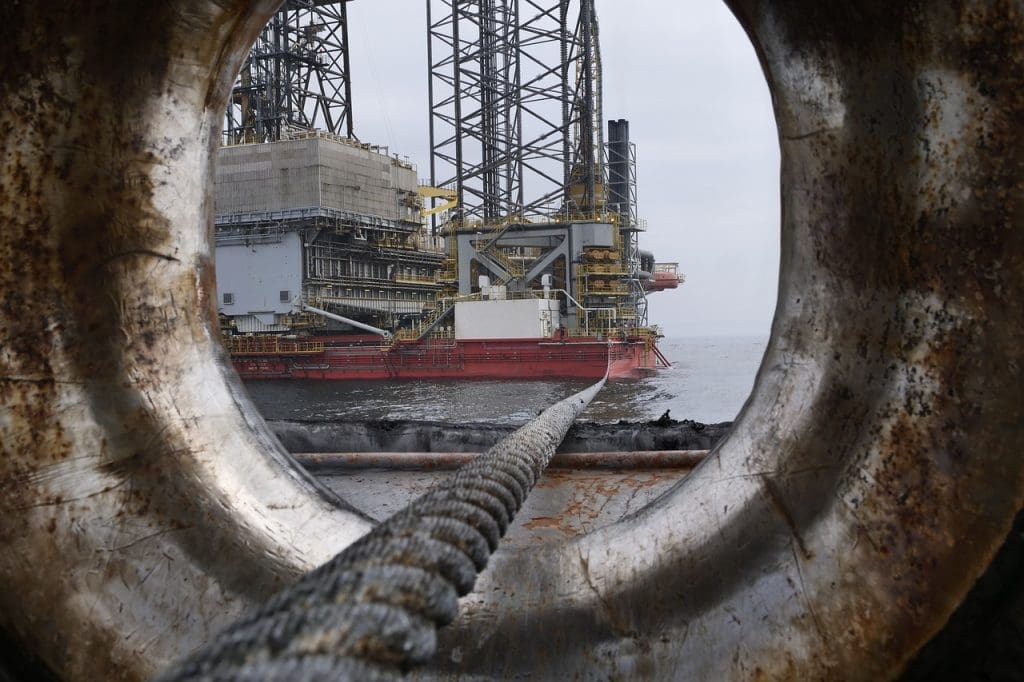
Best Practices For UK Companies Hiring Employees From Overseas in the Oil And Gas Industries
There are many benefits for UK companies looking to hire overseas professionals like gas engineers, offshore workers or those who work on offshore wind projects. Applying for a UK visa for foreign nationals or sponsoring a worker can be complicated. To help you better navigate the UK’s immigration system, you should ensure:
Compliance and Immigration Management
When bringing oil and gas employees from overseas to the UK, ensuring compliance with employment laws is crucial. You must ensure that:
- You’re paying at least the National Minimum Wage or higher industry standard, complying with the necessary wage for the visa type.
- You’re complying with regulations on working hours, breaks, and overtime pay, particularly for those working remotely or offshore workers.
- You grant the same statutory holiday entitlement and pay as UK employees.
- You enrol the overseas worker into a workplace pension scheme.
- You maintain a safe working environment compliant with UK health and safety.
- You’re promoting a fair and inclusive workplace culture free from discrimination based on nationality, ethnicity, or other protected characteristics.
- You maintain accurate records of your sponsored workers’ contact information, employment details, and visa compliance. And report any changes in employment to UK Visas and Immigration using the sponsorship management system.
- It is also vital to stay updated on the latest regulations and be mindful of potential changes in UK immigration laws and visa requirements.
Ensure Cultural Integration
It is also vital for UK companies hiring foreign offshore workers to assess their cultural competency, especially as you are bringing them into a new country. When the offshore worker arrives, consider offering English language courses to help improve communication. English language proficiency may be a visa requirement. Organising welcome events, team-building activities, and cultural awareness training can help to promote a sense of belonging.
Our Immigration Team Can Help Your Business
Bringing skilled professionals from overseas into your oil, gas and energy operations can be hugely beneficial. However, obtaining a visa can seem daunting without proper guidance.
At IAS, our team of immigration lawyers has extensive experience advising UK employers on compliant international recruitment best practices.
Our services include:
- Assessing your skills gaps and overseas hiring needs
- Recommending optimal immigration routes for oil and gas roles
- Assisting with sponsorship licence applications
- Preparing certificates of sponsorship and visa paperwork
- Ensuring ongoing compliance with immigration rules
- Supporting visa renewals and settlement applications
Whether you need strategic advice on legally hiring an offshore worker or help completing visa applications for an experienced petroleum engineer, contact the Immigration Advice Service on +44 (0)333 305 9375 or message us online today to discuss your specific overseas recruitment needs.
Table of Contents
Table of Contents will appear here.Legal Disclaimer
The information provided is for general informational purposes only and does not constitute legal advice. While we make every effort to ensure accuracy, the law may change, and the information may not reflect the most current legal developments. No warranty is given regarding the accuracy or completeness of the information, and we do not accept liability in such cases. We recommend consulting with a qualified lawyer at Immigration Advice Service before making any decisions based on the content provided.
Services we Provide
Frequently Asked Questions
You should offer salaries that meet or exceed the minimum requirements set by UK Visas and Immigration (UKVI) guidelines for each specific job role within your company.
The application processing time varies depending on visa type, applicant’s circumstances, and the workload at the processing centre. The Skilled Worker Visa and Temporary Worker Visas typically take between 2-6 weeks to receive a decision.







